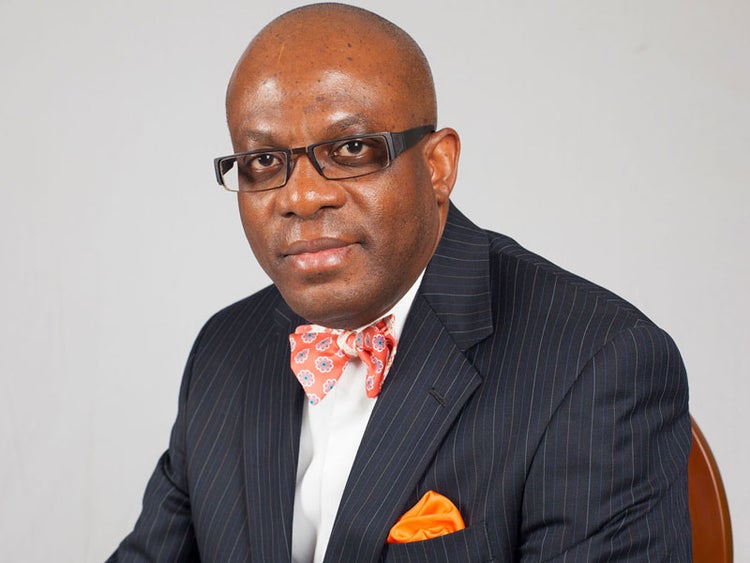The trial of President of the Nigerian Bar Association (NBA), Paul Usoro, over alleged N1.4 billion fraud preferred by Economic and Financial Crimes Commission against him will continue on March 23.
Usoro who is standing trial on a 10-count charge of the fraud was first arraigned before Justice Muslim Hassan in December 2018, but the case was re-assigned to Justice Rilwan Aikawa following an application for transfer of the case.
He pleaded not guilty to the charge before Hassan and Aikawa, and was granted bail. Trial has since begun before Aikawa.
Also in the charge against Usoro is Akwa Ibom Governor Udom Emmanuel, who is described as being “currently constitutionally immune against prosecution.” The others are Akwa Ibom State Commissioner for Finance, Nsikan Nkan; Accountant-General of Akwa Ibom State, Mfon Udomah; Akwa Ibom State Attorney-General, Uwemedimo Nwoko and Margaret Ukpe. The aforementioned names were described in the charge as being at large.
In the charge marked FHC/418c/18, the anti-graft agency alleged that the defendant committed the offences on May 14, 2016. The commission said that the N1.4 billion belonged to the Akwa Ibom State Government. The defendant was alleged to have conspired to convert the said sum, which he reasonably ought to have known, formed part of the proceeds of an unlawful activity.
At the resumed sitting on Monday, March 9 at Federal High Court in Lagos, Mrs Idongesit Udom, a prosecution witness said she did not submit her mobile phones to the EFCC during an investigation of Usoro.
Mrs Udom, who began evidence in December 2019, had narrated how money was credited to the defendant from the impress account of Akwa Ibom State.
She had told the court that she got Usoro’s contact from Governor Emmanuel, on March 14, 2016, and later called Usoro to inform him about the payment. When trial resumed on Monday, Udom was cross-examined by defence counsel, Mr Offiong Offiong (SAN).
Defence counsel asked the witness, “Do you like the governor?” She replied, “As governor of Akwa Ibom, yes. When asked the date on which she allegedly made a call to the defendant, she replied that she could not recall the exact date but it was at noon. She supplied the number with which she made the call to the defendant as 08037525858. Defence counsel asked her.
“You will agree with me that when you place a call to another person, there is usually a call log both in your phone and with your service provider.” She replied, “Yes.” However, when defence counsel asked the witness if she had submitted her phone to EFCC for investigation, she replied, `No.’
“My phones were never submitted to the EFCC; I have two phones and they were never submitted,” she said. When defence counsel asked her about the model of the particular phone and the network of the line, she said that although it was an iPhone, she might not know its model since it was a gift from a bank.
She told the court that her mobile line which she had supplied as 08037525858 was a 9Mobile network. When asked where the phone was, she told the court that she had given it out but still retained her SIM card.
On who the said phone was traceable to, she said it was given to a young colleague named Ugochi Otu. When defence counsel repeated the question on whether the phone was ever submitted to the EFCC to investigate its call log, she still replied in the negative. She also told the court that her present phone was also an iPhone, but was given to her by her husband.
When asked if her present phone was with her in court, she told the court that it was in her hotel room. The witness also testified that she made statements to the EFCC on July 12, 2018 and July 19, 2018, adding that her old phone was still in her possession at the time.
Besides, the witness told the court that one Irene Akpabio, was also invited by the EFCC for interrogation. She told the court that Irene and herself were designated as relationship managers of the account of the firm of Paul Usoro and Co. Trial will continue on March 23.
The prosecution said that the unlawful activities included criminal breach of trust contravening the provisions of Section 15 (2), 15(3), and 18 (A) of the Money Laundering (Prohibition) Act, 2011. (NAN)

